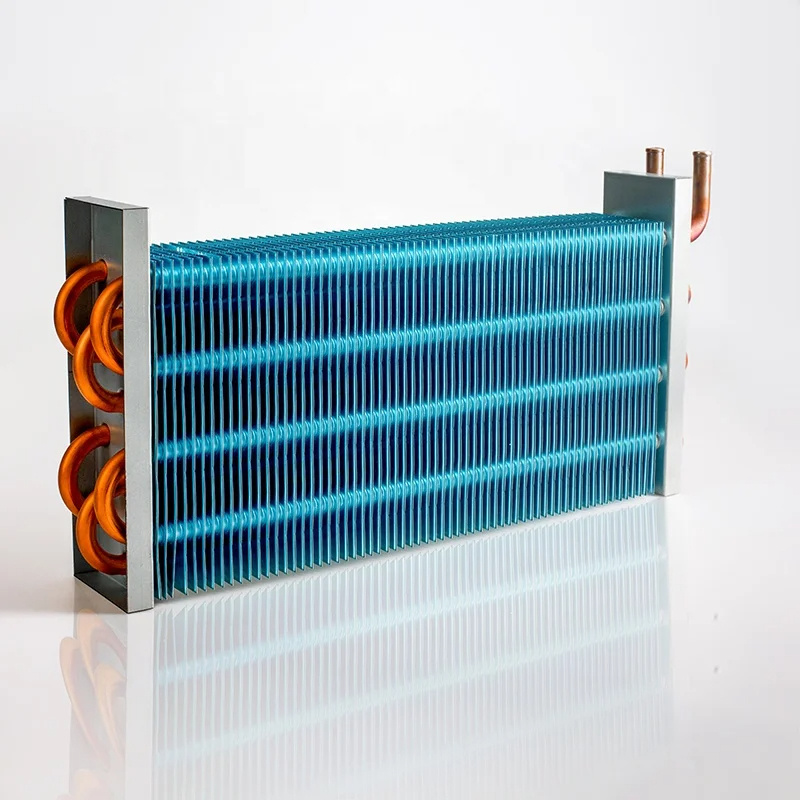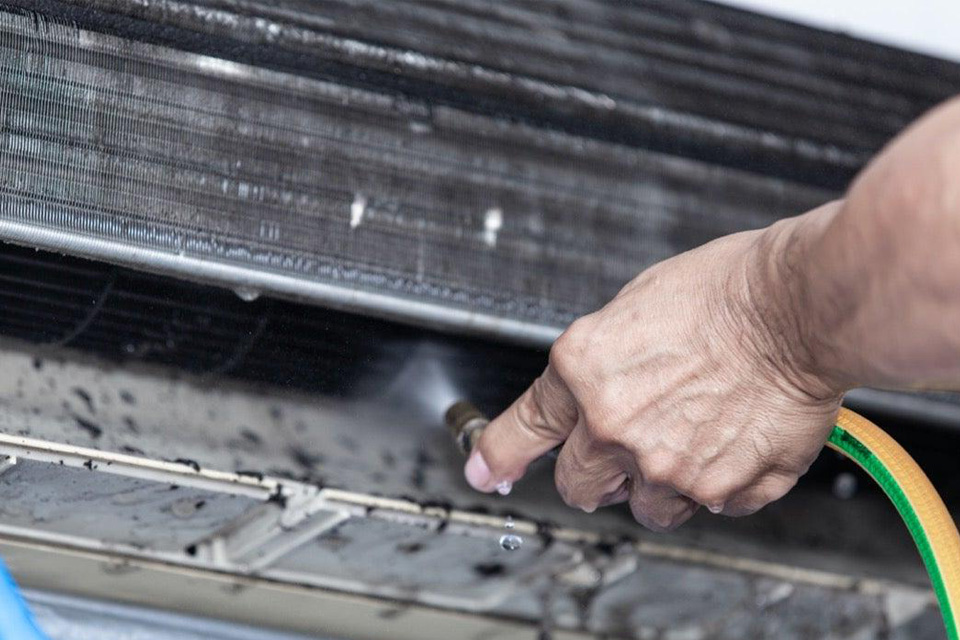
© 2025 Condenser Coil All rights reserved.
This article provides a comprehensive guide on how to effectively clean your air conditioner’s condenser coil. Maintaining a clean condenser coil is essential for efficient operation, energy savings, and prolonging the lifespan of your AC unit. You will learn why it is important to keep your condenser coil clean, how often to clean it, and a step-by-step process for cleaning, making this article worth reading for any homeowner with an air conditioning system.
The condenser coil is a critical component of your air conditioning system. It is located in the outdoor unit and is responsible for releasing the heat absorbed from your home’s indoor air to the outside. Over time, the condenser coil can accumulate dirt, dust, debris, and even plant growth. This buildup acts as an insulator, hindering the coil’s ability to remove heat effectively. When the coil becomes dirty, your air conditioner works harder to cool your home, leading to increased energy consumption and higher utility bills.
Dirty coils can also cause your air conditioning unit to overheat, leading to potential damage to the compressor, which is one of the most expensive parts of the system to replace. Regular cleaning of the condenser coil ensures that your AC unit runs efficiently, keeps your home cool, and helps avoid costly repairs. Moreover, clean coils mean that your central air conditioning system can maintain a consistent indoor temperature without overworking itself. It also can help to ensure your air conditioning maintenance is going smooth. Dirty coils can also strain other parts of your system, such as the indoor air handler, which can lead to potential issues with that component as well.
The frequency with which you need to clean your air conditioner coils depends on several factors, including the environment where you live, the amount of foliage near your outdoor unit, and how often you use your air conditioner. As a general rule, it is recommended to clean your condenser coil at least once a year. However, if you live in an area with a lot of dust, pollen, or vegetation, or if you use your air conditioner frequently, you may need to clean the coils more frequently.
It is a good idea to visually inspect your condenser coil every few months. If you notice a significant buildup of dirt or debris, it is time to clean the coil. Additionally, if you notice that your air conditioner is not cooling your home as effectively as it used to, or if your energy bills have increased unexpectedly, a dirty condenser coil could be the culprit. It’s important to note that if your outdoor ac unit is near foliage, or anything that produces debris, you should check your ac coils more frequently. Maintaining your air conditioning unit is a very important part of being a homeowner.
Cleaning your condenser coil is a relatively straightforward process that you can do yourself with a few basic tools. The best way to clean AC condenser coils is to first turn off the power to your air conditioner at the circuit breaker. This is an important safety step to prevent electrical shock. Next, remove any large debris from the area around the outdoor unit, such as leaves, twigs, or grass clippings.
Once the area is clear, you can use a garden hose with a spray nozzle to gently wet the coils. Avoid using a high-pressure setting, as this can damage the delicate coil fins. After wetting the coils, apply a generous amount of coil cleaner specifically designed for air conditioners. Allow the cleaner to sit on the coils for the time recommended by the manufacturer, typically 10-15 minutes. The coil cleaner will help to loosen and dissolve the dirt and grime. This is the best way to clean your coils.
A clogged AC condenser coil can lead to a variety of problems with your air conditioning system. As mentioned earlier, a dirty coil reduces the system’s ability to remove heat from your home, resulting in decreased cooling efficiency and increased energy consumption. In severe cases, a clogged coil can cause the system to overheat and shut down completely.
A clogged condenser coil can also cause the refrigerant pressure within the system to become too high, which can damage the compressor and other components. Additionally, a dirty coil can restrict airflow across the coil, leading to reduced airflow throughout your home and uneven cooling. If you suspect that your condenser coil is clogged, it is important to clean it as soon as possible to prevent further problems.
There are many different types of coil cleaners available on the market, so it is important to choose the right one for your needs. When selecting a coil cleaner, look for a product that is specifically designed for cleaning air conditioner coils. These cleaners are typically formulated to effectively remove dirt, dust, and grime without damaging the delicate coil fins or other components of the system.
Some coil cleaners are designed to be rinsed off with water after application, while others are “no-rinse” formulas that can be left on the coils to air dry. If you choose a rinse-off cleaner, make sure you have access to a garden hose and a water source. If you prefer a no-rinse cleaner, make sure it is safe for use on the type of coil in your air conditioner.
There are two main types of coils in a typical HVAC system: the evaporator coil and the condenser coil. The evaporator coil is located inside your home, usually within the air handler or furnace. Its job is to absorb heat from the indoor air, cooling it down before it is circulated back into your home.
The condenser coil, on the other hand, is located in the outdoor unit. Its role is to release the heat absorbed by the evaporator coil to the outside air. The two coils work together, along with the compressor and other components, to cool your home efficiently. Both the evaporator and condenser coils are made of metal tubing, usually copper or aluminum, and are surrounded by thin metal fins that help to increase the surface area for heat transfer. Wondering how to clean both of them? It is suggested that you hire an HVAC professional to clean your evaporator coil.
| Coil Type | Location | Function |
|---|---|---|
| Evaporator Coil | Indoor Unit | Absorbs heat from indoor air |
| Condenser Coil | Outdoor Unit | Releases heat to the outdoor air |
While cleaning your condenser coil is a task that many homeowners can handle themselves, there are situations where it may be best to hire an HVAC professional. If you are not comfortable working with electrical components or if you do not have the necessary tools or experience, it is a good idea to call a professional.
Additionally, if your condenser coil is severely clogged or damaged, or if you suspect there may be other problems with your air conditioning system, a professional can diagnose and repair the issue. An HVAC professional can also perform a thorough cleaning of your entire HVAC system, including the evaporator coil, which is more difficult to access and clean than the condenser coil.
While the condenser coil itself does not directly impact indoor air quality, a dirty condenser can indirectly affect the air you breathe. When the condenser coil is dirty, your air conditioner has to work harder to cool your home. This can lead to increased humidity levels indoors, which can create a breeding ground for mold and mildew.
Mold and mildew can release spores into the air, which can trigger allergies and respiratory problems. Additionally, a dirty condenser coil can reduce the overall efficiency of your air conditioning system, meaning it may not be able to filter the air as effectively. Regular cleaning of your condenser coil, along with changing your air filters regularly, can help to maintain good indoor air quality. If you know how to clean air conditioning coils, this will lead to better indoor air quality.
In addition to regularly cleaning your condenser coil, there are several other things you can do to keep your AC unit running efficiently and prolong its lifespan:
By following these tips, you can ensure that your air conditioner runs efficiently, keeps your home cool and comfortable, and lasts for many years to come. Cleaning your condenser coil is an important part of home maintenance that should not be overlooked. With a little bit of effort, you can keep your AC unit in top shape and enjoy the benefits of a cool and comfortable home all season long.

This step-by-step guide provides product help for homeowners looking to maintain their air conditioning system by cleaning the condenser coils.

Your air conditioning unit is a complex system with many parts working together to keep your home cool and comfortable.

This article dives deep into the world of condenser coils, a crucial component of any HVAC system, exploring their function, design, and key features.

This article explains how your central air conditioner works, focusing on the critical roles of the evaporator and condenser coils.

This article explains how water chillers work, focusing on the role of water in the cooling process.

This article delves into the critical debate of copper versus PFC (parallel flow) condenser coils in modern air conditioner units.

This numerical investigation delves into the influence of geometric parameters of immersed helical condenser coils.

This article dives into the common problems that plague AC condenser units, explaining why these issues occur and how they impact your air conditioning system’s performance.

This article explores the intricate workings of your home’s HVAC system, focusing on the vital roles of evaporator and condenser coils.

This document details a study on the application of multi-objective evolutionary algorithms, specifically Genetic Algorithms (GAs).

This article provides a comprehensive guide on how to effectively clean your air conditioner’s condenser coil.

This article dives into the common problems that plague AC condenser units, explaining why these issues occur and how they impact your air conditioning system’s performance.

This article delves into the common problem of refrigerant leaks in LG split AC units, specifically focusing on the debate between aluminum and copper condenser coils.
© 2025 Condenser Coil All rights reserved.
Fill out the form below, our team can reply in 20 minutes.